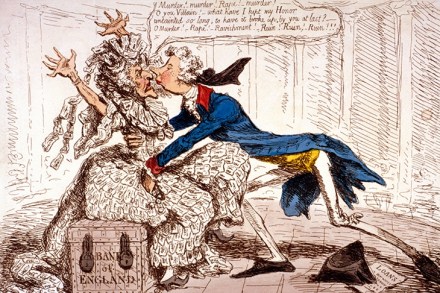Murder, fraud and bankruptcy
Hamilton, created by the remarkable Lin-Manuel Miranda, has brought the financial musical to the London stage: a serious biography of a great man translated into rap. What comes next? Now we know. It is the story not of one individual but of a national institution — the life and times of the Bank of England. I can’t wait for David Kynaston’s new history to reach the stage. We may have to call on Tim Rice, a revolutionary himself in the world of musicals, to generate a libretto from the long original text. But there is a wealth of material in this fascinating book. Often seen as a rather traditional and




















